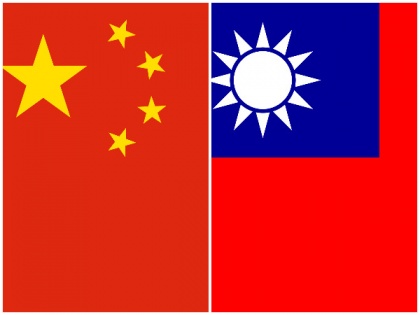Inter-Parliamentary Alliance on China concerned over Taiwanese pineapple ban by Beijing
By ANI | Published: March 6, 2021 09:57 PM2021-03-06T21:57:53+5:302021-03-06T22:05:01+5:30
Inter-Parliamentary Alliance on China (IPAC), an international, cross-party alliance of parliamentarians, has expressed concerns over the Taiwanese pineapples' ban by Beijing and said Taipei is coming under increasing pressure from Beijing.

Inter-Parliamentary Alliance on China concerned over Taiwanese pineapple ban by Beijing
Inter-Parliamentary Alliance on China (IPAC), an international, cross-party alliance of parliamentarians, has expressed concerns over the Taiwanese pineapples' ban by Beijing and said Taipei is coming under increasing pressure from Beijing.
The concern was expressed during a video conference of the IPAC on Thursday which was also attended by Taiwan Foreign Ministry Joseph Wu.
During the press conference, Joseph explained that Taiwan's pineapples were suspended by China. He flaunted the fruit during a video conference, Taiwan News reported.
China recently banned the fruit saying it contains harmful insects. During Thursday's meeting, Joseph explained the situation while showing what he called a prime-quality Taiwanese pineapple.
"The Co-Chairs were delighted to host Joseph Wu, the Foreign Minister of Taiwan, today for a briefing followed by Q&A. IPAC looks forward to deepening its friendship and partnership with Taiwan which is coming under increasing pressure from Beijing. #StandTogether #IPAC," IPAC tweeted.
The Inter-Parliamentary Alliance on China is an international cross-party group of legislators working towards reform on how democratic countries approach China, according to the IPAC website.
Last year, MPs from political parties in the US and Europe have formed the alliance to adopt a tough stance against the Chinese Communist Party
The Ministry of Foreign Affairs said in this tweet that Joseph urged more countries with similar ideas to work together to defend freedom, democracy, human rights, and order. He also thanked IPAC for concern about Taiwan's "free pineapple" banned by China.
"Minister Wu participated in a briefing/Q&A for the @ipacglobal co-chairs. He urged more cooperation between like-minded countries in defending freedom, democracy, human rights & rules-based order. We appreciate #IPAC's concern over the #Taiwan #FreedomPineapple ban by #China.," The Taiwan foreign ministry tweeted.
Last week, China's General Administration of Customs announced the suspension. The Chinese authorities claimed that the action was taken after mealybugs were found in several batches of fresh pineapples shipped from Taiwan in 2020, Focus Taiwan reported.
The move has been interpreted by some in Taiwan as being directed at the governing Democratic Progressive Party (DPP), which is frequently critical of China.
Taiwan has termed the suspension of pineapples import an "unfriendly" move.
Taiwan's Council of Agriculture (COA) announced that it would spend NT$1 billion (US$35.33 million) to promote pineapple sales at home and abroad, while President Tsai Ing-wen and Vice President William Lai would take action to support domestic growers by consuming more pineapples themselves, Presidential Office spokesman Xavier Chang said.
Taiwan produces nearly 420,000 tonnes of pineapples every year. It had exported 6,200 batches to China since last year, with only 13 batches, totalling 141 tonnes, failing tests, meng the qualification rate was 99.79 per cent, he said.
China has a history of using trade to help it achieve its policy goals.
The United States and Canada are among the countries who have praised Taiwan's "freedom pineapples" after China last week blocked imports of the fruits,
Taiwan Foreign Minister Joseph used the opportunity to call for international solidarity, taking to Twitter to ask the world to "rally behind the #FreedomPineapple."
In response, the American Institute in Taiwan, the de facto U.S. embassy in the country, posted pictures of Taiwanese pineapples on Facebook, including a photo of its director Brent Christensen with three pineapples on his desk, using the hashtags #realfriendsrealprogress and #pineapplesolidarity.
The Canadian Trade Office in Taipei - that country's de facto embassy - used the hashtag #FreedomPineapple on its Facebook page along with a photo of staff posing around a pineapple pizza. "We in the Canadian Office like pineapple pizza, especially pineapples from Taiwan!" it wrote.
( With inputs from ANI )
Disclaimer: This post has been auto-published from an agency feed without any modifications to the text and has not been reviewed by an editor
Open in app